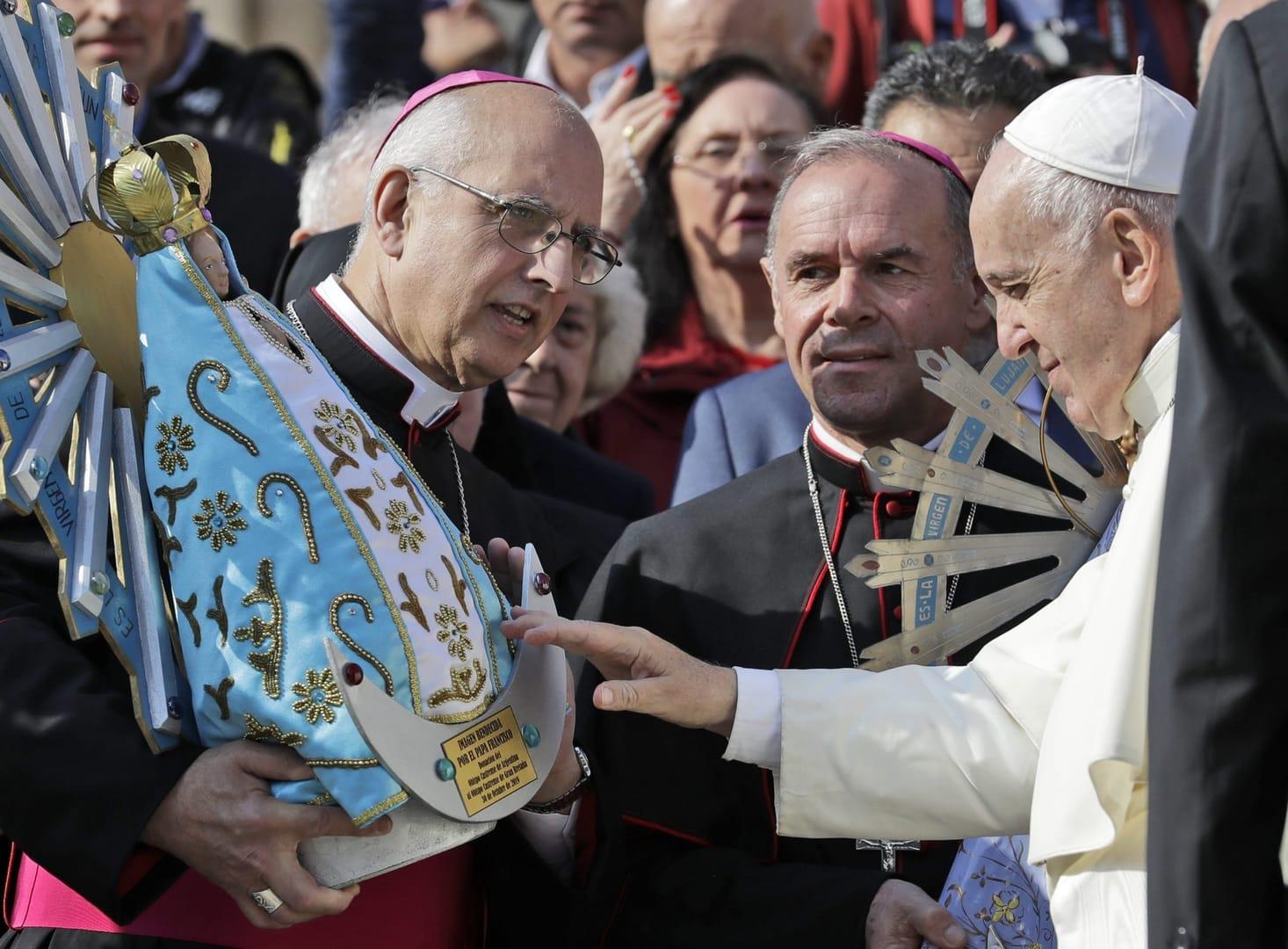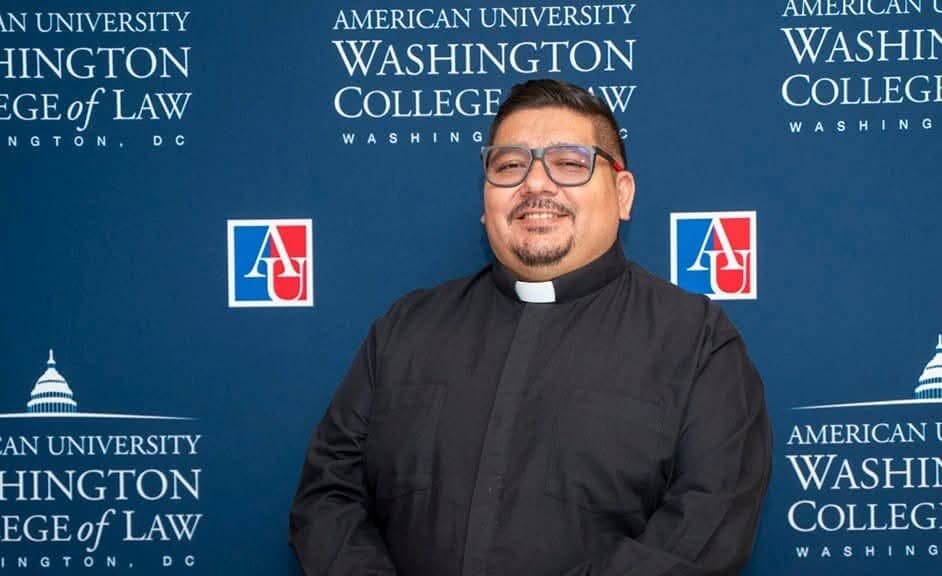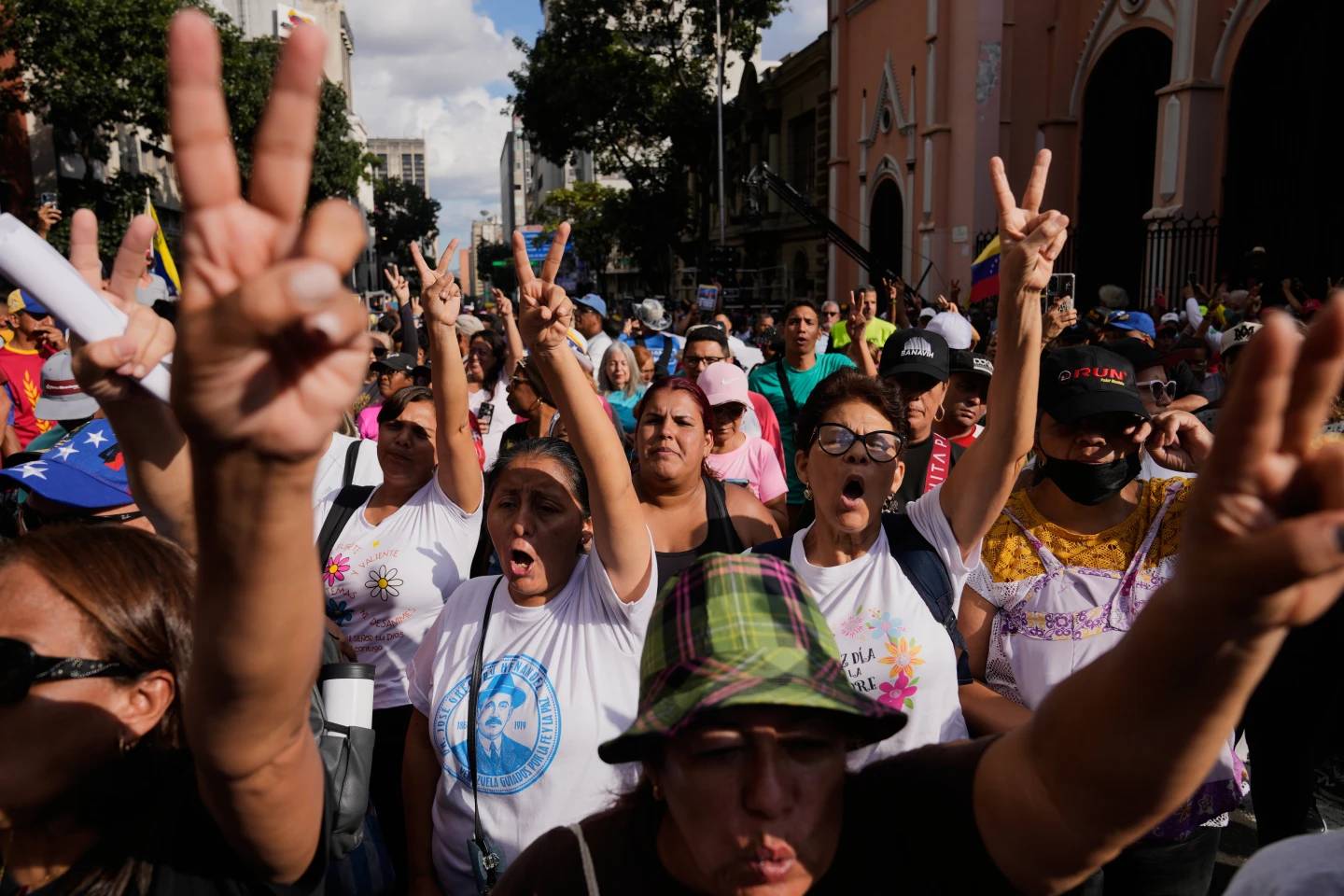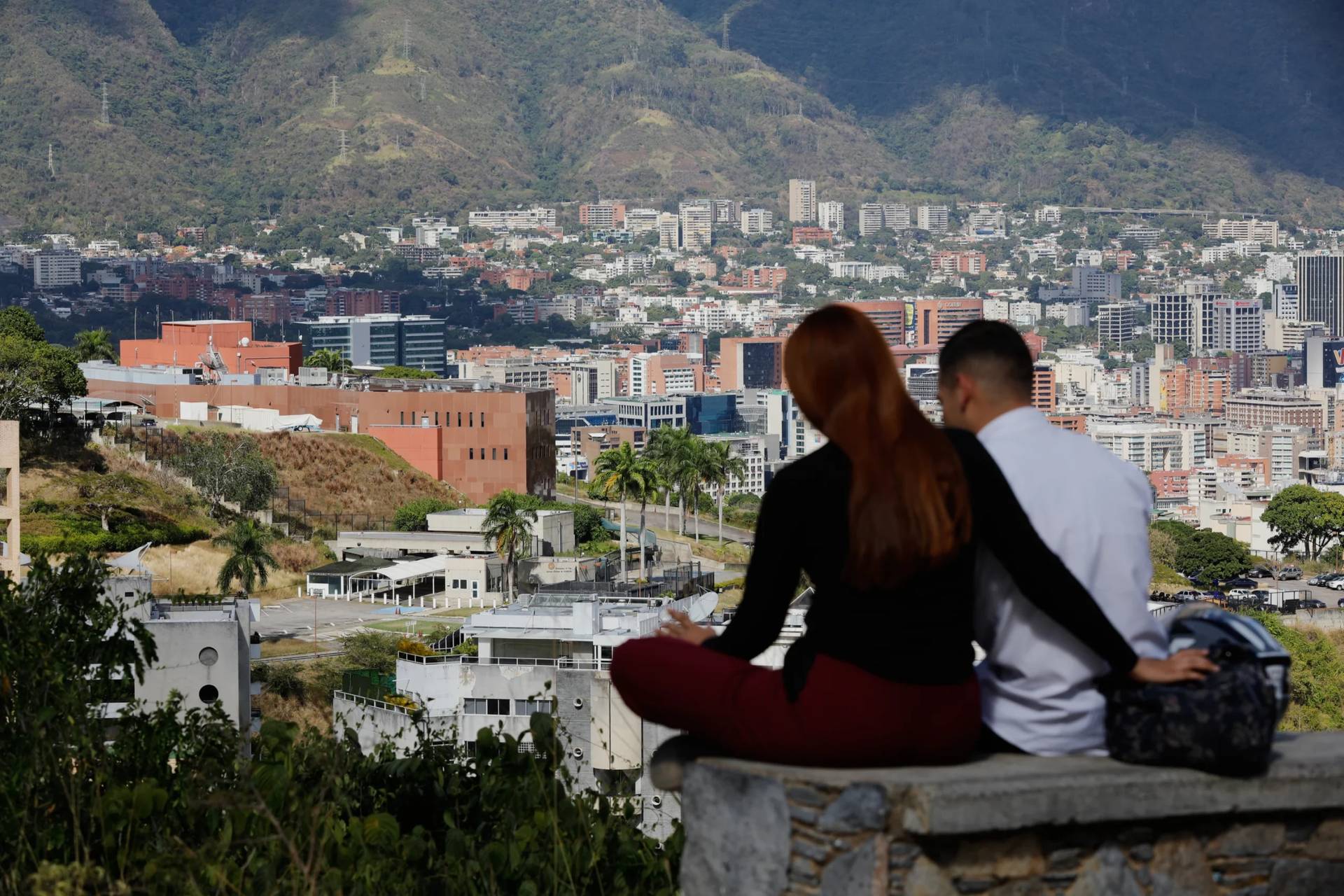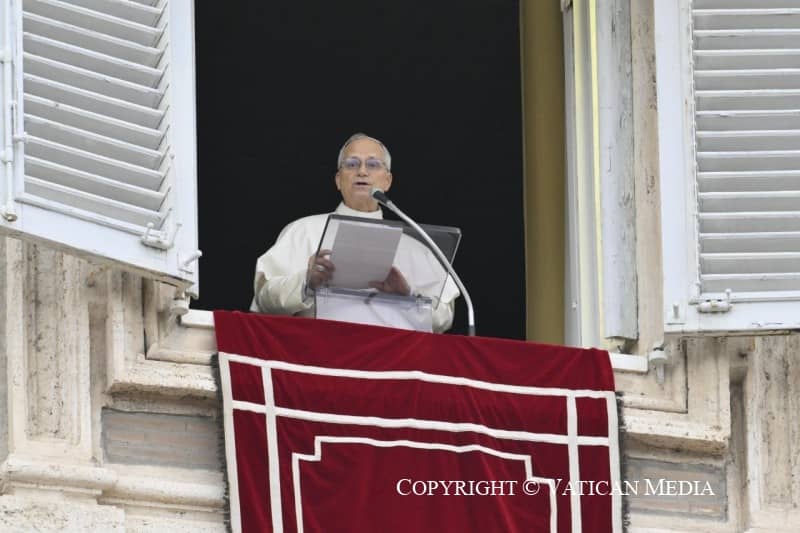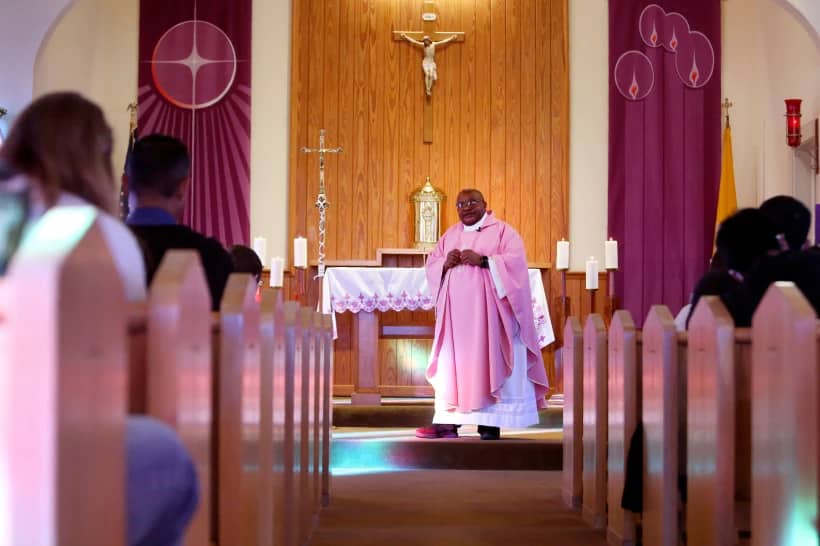ROSARIO, Argentina – Pope Francis sent home 50 rosary beads for military men and women in his native country Argentina who are imprisoned as they await trial for alleged crimes committed during the country’s “dirty war,” the anti-communist campaign by the country’s military junta that left thousands of disappeared from 1976 to 1983.
“Sending the rosaries to the detained is a gesture of presence and closeness with those who are suffering the most,” said Bishop Santiago Olivera, Argentina’s military bishop.
“These are gestures the pope would have with anyone who is suffering, who is detained. We are all brothers and sisters, and as the Lord says in the Scriptures, we are called to love everyone without limits, with all our strength and our whole heart,” he told Crux in a telephone interview. “And the pope is simply living this reality.”
The pope sent the rosaries on Saturday, when Olivera was in Rome to meet with Francis. The gesture came less than a month before the pontiff is set to welcome Argentinian President Alberto Fernandez on Jan. 31, who took power last December after defeating incumbent Mauricio Macri.
“The pope’s consideration to my request fills me with joy, because many members of the military who are in prison asked me for a rosary blessed by him, to feel that closeness that other men and women from Argentina have felt,” Olivera said Sunday.
The gift is a call for the military members who are in prison to “continue to pray,” he noted in a statement.
According to the bishop, Jesus “loved everyone,” and Francis “always invites us to love in the way God loves: He always loves, he loves first, and he loves everyone. This is something Francis incarnates, God’s way of loving.”
Olivera noted that the pope’s decision is “nothing new” and that Francis decided to bless instruments used for prayer and send them to people who are in a “preventive prison” regime, some of whom have been in jail or under house arrest for over a decade, without ever being sentenced by a court.
Olivera pointed out that the pontiff has made similar gestures with other, similarly controversial figures in Argentina’s politics, including left-leaning social leader Milagro Sala, who was preventively sent to jail in 2016, accused of misusing millions of state funds that were destined to help the poor. In 2019, she was sentenced to 13 years in prison for corruption.
“It’s important to discover that the Church is to be close and give comfort to all, making no distinctions and without excluding anyone,” Olivera said.
The bishop also said that, as Francis has noted several times before, it is unfair to hold a person in jail for years as they wait for their day in court. “This is unfair for everyone, [including] politicians and the military,” Olivera said.
According to Olivera, the pope encouraged him to continue working for justice, peace, harmony and encounter.
Francis’s decision to send the rosaries to the military was welcomed by some and condemned by others, including within the government of Fernandez, who faces a somewhat uphill battle to earn the support of the first pope from the global south.
Argentina today is a highly divided country, and though it’s not a straight line, the sides are led by Fernandez and Macri, who though on holiday since stepping down, continues to be the head of the opposition.
Macri had a formal if somewhat cold relationship with Francis, though the pontiff is on record saying he had no problems with him outside of the two times they clashed when one was the archbishop of Buenos Aires and the other the city’s mayor.
Those two clashes were over abortion and gay marriage – Macri made limited allowances for both in his city. Adding to that, last year Macri let the country debate the legalization of abortion, despite publicly stating several times that he was against it.
Since taking office, Fernandez has liberalized access to abortion, and said all hospitals must provide the procedure in the limited cases allowed by Argentinian law.
In addition, Fernandez- whose son is transgender – created an “equality” ministry, that aims to erase all gender differences and is enforcing mandatory “integral sexual education” in every school that receives public funds. According to the curricula, children in kindergarten will be taught that gender is a “social construct” and that they can choose if they are male, female – or neither – and that this decision is not permanent.
Following his lead, several public offices and even universities are also enforcing a new, “inclusive” version of Spanish that erases gender from the language, a move the Madrid-based Royal Spanish Academy has deemed “erroneous.”
In a Jan. 14 television interview, Argentina’s president acknowledged that he values the pope, and that he would “celebrate” a papal visit to the nation. Francis hasn’t gone back to Argentina since being appointed pope in 2013, a decision deemed as controversial and political by many.
“The pope is not on any side, he is above us all,” Fernandez said in the interview.
Follow Inés San Martín on Twitter: @inesanma
Crux is dedicated to smart, wired and independent reporting on the Vatican and worldwide Catholic Church. That kind of reporting doesn’t come cheap, and we need your support. You can help Crux by giving a small amount monthly, or with a onetime gift. Please remember, Crux is a for-profit organization, so contributions are not tax-deductible.
